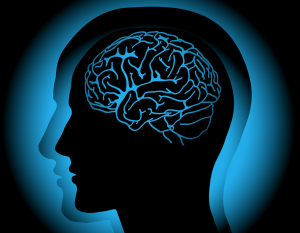
Source: NICABM
(Trigger Warning: Sexual violence, rape culture)
With everything in the news recently, it can feel impossible to sift through what we should believe and what we shouldn’t.
From varying witness testimony in Ferguson to the opinions gleaned from Rolling Stone’s deeply flawed article on Jackie’s “incongruent” account of her sexual assault, it’s hard to know where to stand on believing someone’s story.
As allies to survivors, we must believe that a survivor’s account of their sexual assault is true. We have absolutely nothing to lose by believing a survivor’s words, and a survivor has everything to gain through the experience of feeling trusted and validated.
Even if the details seem confusing, we must stand firm in knowing that their account of sexual assault is rooted in truth.
Even if we experience their account as disoriented, foggy, or even factually incorrect, we must understand that they are still telling their own deepest truth, and we must honor that.
When someone tells me that they were raped at noon on Tuesday and that the moon was shining and it was pitch black outside, I still believe them, even though I know that, objectively, the moon wasn’t shining at noon.
What I believe is that in that particular moment, their world felt as dark and quiet as the world seems at midnight.
I believe survivors. No matter what. So should you.
And here’s why: The brain literally changes size and shape as the result of a traumatic event. The way a person stores and shares what happened to them is fundamentally altered.
What Is Trauma?
Let’s begin with an understanding that a trauma is defined by any moment when a person fears for their own life or someone else’s enough to enter a critical state of an involuntary reaction of fight, flight, or freeze.
In that moment, the brain creates a surge of hormones like cortisol and adrenaline. This surge was very useful back in the caveman days of running from lions to escape danger: It is what fueled that sprint to safety.
But think: At the time of a sexual assault, it is most often impossible to flee.
Perpetrators of sexual violence are very strategic in their attack. Survivors are often incapacitated due to a number of factors: the position and relative strength of their body versus their perpetrators’, drugs (including, and most often, alcohol) in their system, the presence of a weapon, and any number of other coercive or violent forces.
Both fight and flight result in a bodily release of that cortisol and adrenaline, but when a person freezes, those hormones stay in the body, resulting in an altered neurophysiology of the brain.
Make no mistake: Freezing is often the safest option.
Rather than risk provoking even more violence from a perpetrator, the mind instructs the body to remain quiet and still until the perpetrator ends the attack. It is most frequently an unconscious choice that stems from a primal and utterly resilient drive to stay alive.
This choice is the very reason that many survivors are just that – survivors.
But with the freeze response, the trauma is incomplete without an expulsion of those hormones. Until healing has occurred, the trauma is still happening in the mind.
That’s enough to change a brain, don’t you think?
This is what we mean when we talk about the neurobiology of trauma.
The Neurobiology of Trauma
When deciding whether to believe a survivor, it is absolutely essential to understand the neurobiology of trauma. A nuanced and educated conceptualization of the way the brain functions will help us to disavow ourselves of our impulse to assume dishonesty in responses that are actually entirely legitimate, real, and physiologically necessary.
While the impact of trauma on the brain is extensive, for the purposes of deciding whether to believe a survivor’s story, it is important to focus on three specific areas.
1. Left Pre-Frontal Cortex
A person’s capacity for language is controlled by their left pre-frontal cortex. At the time of trauma, this part of the brain literally shrinks in size; a person’s capacity for language is diminished.
When a survivor struggles to describe the details of their assault, it is in part due to the actual shrinking of the part of the brain that controls their physical ability to communicate those details.
Instead of demanding a person describe their trauma or assuming that their story isn’t true if they can’t tell it, keep in mind that the full injury of their trauma makes this difficult.
Treat them with kindness, not judgment, and remember that so much more than anyone can know is communicated in their silence.
2. Hippocampus
The hippocampus is directly impacted by trauma.
This is the part of the brain that organizes memory and encodes new information. It holds access to past experiences, facts, and our awareness of our own history.
It is the part of the brain that writes our autobiography; it controls our emotional responses through communication with our historical context.
When this specific part of the brain is affected, trauma is likely to interfere with the localization of incoming information. A person’s conceptualization of time and space will become altered and will continue to cause a fragmented understanding of the memory of the traumatic event.
3. Amygdala
The part of the brain that controls and regulates emotion is impacted as well.
The amygdala is a small part of the brain, but controls much of a person’s emotional functioning. It is a primitive piece of the brain – it does not function rationally, but purely emotionally. It detects danger, like an alarm bell, and responds with primitive emotions, like anger and fear.
It goes into overdrive when it has experienced trauma and creates a hypersensitivity that often looks like irrational behavior. It becomes highly vigilant when remembering trauma and can influence a person to behave in ways that might appear abnormal or strange.
But actually, the responses are entirely normal when understood in a neurobiological context.
Psychological Symptoms of Trauma
These physical changes in the brain can result in the following experiences that many survivors of sexual violence display when asked to recall or relay the details of their trauma:
1. Analgesia
Analgesia is experienced as emotional or physical numbing. A survivor who experienced analgesia may report feeling nothing or may not have a clear emotional or cognitive response to significant events – like a sexual assault.
This experience can be misunderstood by an outsider as an indication that the event did not happen.
If someone was truly traumatized, they’d definitely be upset when talking about it, right?
Wrong.
Understanding analgesia eliminates that erroneous thought from our mind when talking with survivors.
2. Cognitive Confusion
Cognitive confusion is when a person’s thoughts don’t make sense. They may seem fragmented, incomplete, or even influenced by someone else.
At the time of an assault, an adult may revert into a childlike state in order to remain adequately self-protected. They may begin to think along the lines that they thought when they were children.
This is not an infantilization of women or survivors, but a nuanced understanding of the way the mind tries to escape the painful realities of trauma and revert to safety in a more simple time.
Just as a child may not have full capacity to retell a horrific story, sometimes an adult, too, will struggle through the confusion.
3. Amnesia
Amnesia is the mind’s attempt to erase disturbing content from its own history.
This disturbing content feels so unbearable that the conscious mind literally cannot handle knowing it to be true.
Forgetting part of the story, wondering if it happened at all, or wading through a delicate relationship with the “truth” of what happened is both normal and adaptive.
***
All memories — yes, all — contain discrepancies and distortions.
My account of last night’s dinner is sure to differ from my partner’s, though we cooked and ate our meal together. There is no reason to expect anything different when it comes to relaying at traumatic event.
In fact, there is a boatload of evidence that encourages the educated mind to assume the opposite.
The truth of the matter is that we, the Internet audience, have nothing to lose by believing what a survivor tells us.
We are not a court of law, we are not the jury of a sexual assault case (in fact, very few people are since most rapists do not see trial), and we commit no perjury of justice by choosing to believe what a trauma survivor tells us.
In fact, considering the depth of the neurobiological injury to a survivor, we owe it to survivors to believe them.
While all of this can seem scary and overwhelming, there is certainly hope for surviving a trauma, even with the pervasiveness of the negative impacts. The field of mentalization studies the neurobiology of attachment and posits that the brain can return to its previous functioning with the help of love and support.
There is a curative experience that comes with the act of giving and accepting support, even in the aftermath of trauma. Any meaningful healing must exist within the context of a healthy, supportive, and safe relationship.
That safety cannot exist without believing the truth of a survivor’s story.
Hearing, seeing, and trusting survivors’ stories is – quite literally – the cure for trauma.
[do_widget id=”text-101″]
Sarah Ogden Trotta is a psychotherapist at ContactLifeline, Delaware’s Rape Crisis Center. She can be reached at [email protected]. Follow her on Twitter @xsogden. Read her articles here.
Search our 3000+ articles!
Read our articles about:
Our online racial justice training
Used by hundreds of universities, non-profits, and businesses.
Click to learn more
Most Read Articles
- « Previous
- 1
- …
- 30
- 31
- 32



















